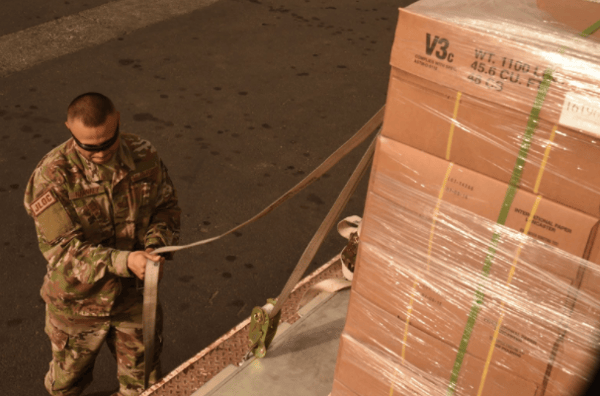
If you’ve earned a role as a military contractor , you know how important that contract can be for your business. A military contract can often mean consistent, long-term demand for your products. The cash flow could help you expand your business and reach new goals.
However, that cash flow doesn’t mean anything if your invoices go unpaid. As many military contractors have learned the hard way, getting an invoice paid by the Department of Defense (DoD) isn’t as simple as you might expect.
For years, the DoD used a system called Wide Area Work Flow (WAWF) to manage all vendor contracts, invoices, and other important documents. In 2017, DoD started to transition the invoicing component to a new system called Invoicing, Receipt, Acceptance and Property Transfer, also known as iRAPT.
The two systems work in essentially the same manner, so your experience with iRAPT is unlikely to be too different from WAWF. Both systems were designed to reduce paperwork, manual entry, and other inefficiencies.
In fact, the government uses these systems to help you get paid faster. If you know how to use them correctly, that’s exactly what will happen. Unfortunately, if you don’t closely follow DoD’s rules and guidelines with the system, you could see your payment delayed or your invoice even rejected.
Below are a few tips to help you navigate the DoD’s invoice system and get your invoices paid faster. If you’re a new military Contractor or if you’re struggling to get timely payment, it might be time to review your approach to submitting your invoices.
Don’t Wait Until the Last Minute to Register
Many new vendors wait until they are ready to submit an invoice before they access the WAWF or iRAPT system. This is usually a mistake. If you’ve never had a military contract before, you may be overwhelmed by the registration process.
During registration, you’ll need detailed information about your internal team and your process for handling questions about the invoice. If any of that information is inaccurate or incomplete, your registration for the site could be rejected, delaying your ability to submit an invoice.
Even if your information is accurate, your registration still has to be reviewed internally by the DoD. This process can take several days, and you won’t be able to submit your invoice until the registration is approved. You can avoid this delay by registering for the appropriate system as soon as you’ve started submitting RFQ’s , not when you need the invoice paid.
Organize Your Team and Process
When you register for iRAPT, you’ll be asked to name a group administrator. This is a person on your team who is the main point of contact for military questions about your invoices, shipments, and other issues. In short, this is your internal team member responsible for activating users for receiving report entry, invoicing, cost vouchers and much more.
Just because you have a group administrator, however, doesn’t mean that person should be solely responsible for timely government payments. The most successful government vendors have a defined team and process in place. The group administrator works closely with IT support staff, production professionals, and even the packaging and shipping teams to make sure there are no issues that could hold up payment.
Too many contractors take an reactive approach to invoicing. They submit their invoice to the DoD and then address issues after the invoice is rejected. Instead, your group administrator should work with other team members to identify potential issues in advance. That way, you can address those problems before they cause a cash flow disruption.
Triple Check Your Invoices for Data Accuracy
This may seem like common sense, but unfortunately, simple data errors are one of the primary causes of invoice rejections. The DoD operates strictly off of the information on your invoice. It won’t correct mistakes on your behalf. If your contract number, Item Unique Identification (IUID) numbers, or other data are inaccurate, your invoice is likely to be rejected.
The easy way to resolve this risk is to triple check your invoice information. It’s also helpful to use an automated system that pre-fills this information directly from purchase orders. That reduces the risk of human error and increases the likelihood that your invoices will be accurate.
Stay Compliant with RFID, Standard 2073, and Other Quality Assurance Requirements
Finally, before the DoD will even consider paying your invoice, your goods have to be accepted by the DoD’s quality assurance team. Not only do your products need to meet the DoD’s high quality standards, but your packaging will also need to be compliant.
Depending on your product, you likely have to meet certain packaging guidelines under MIL-Std-2073, which lays out detailed instruction for how certain types of goods should be packaged. The instructions in 2073 aren’t suggestions; they’re mandatory. If your packaging isn’t compliant, your shipment may not be accepted and your invoice will be rejected.
Similarly, you may be required to use RFID tags on your shipments, containers, or pallets. Failure to do so or the use of an incorrect tag or number could lead to rejection of your shipment and your invoice.
You can avoid this risk by working with a packaging partner who has military supply chain experience. They can use their knowledge and insight to help you avoid issues before they arise. They can help you implement processes to maximize your military supply opportunity and they can even assist you in navigating the DoD’s invoicing framework. Consider working with a military packaging partner to get your invoices processed and paid in a timely manner.





Let Us Know What You Thought about this Post.
Put your Comment Below.